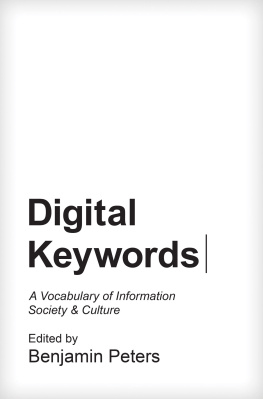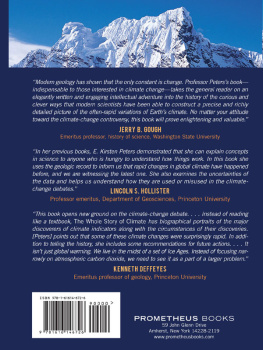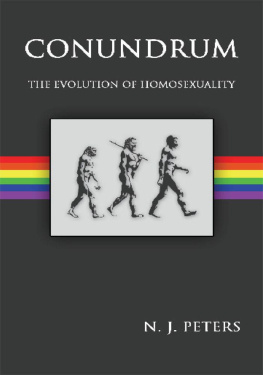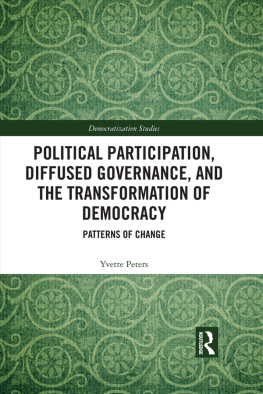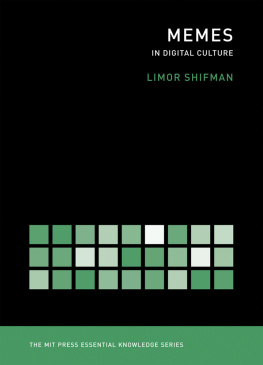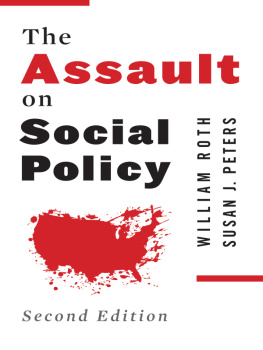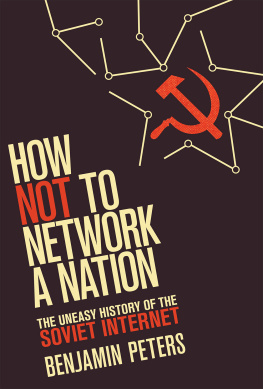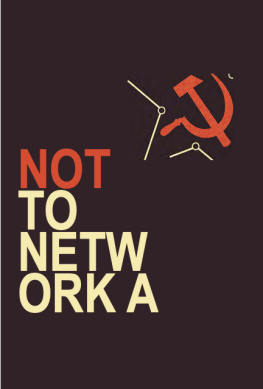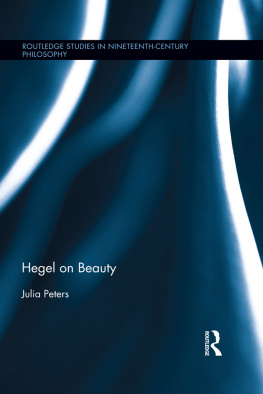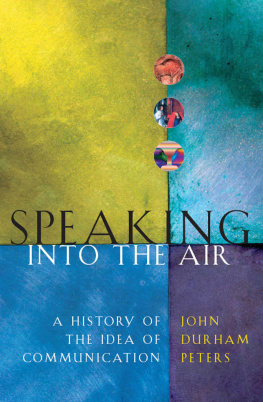


Tom Boellstorff and Bill Maurer, series editors
This series presents innovative work that extends classic ethnographic methods and questions into areas of pressing interest in technology and economics. It explores the varied ways new technologies combine with older technologies and cultural understandings to shape novel forms of subjectivity, embodiment, knowledge, place, and community. By doing so, the series demonstrates the relevance of anthropological inquiry to emerging forms of digital culture in the broadest sense.
Sounding the Limits of Life: Essays in the Anthropology of Biology and Beyond by Stefan Helmreich with contributions from Sophia Roosth and Michele Friedner
Digital Keywords: A Vocabulary of Information Society and Culture edited by Benjamin Peters

Copyright 2016 by Princeton University Press
Published by Princeton University Press,
41 William Street, Princeton, New Jersey 08540
In the United Kingdom: Princeton University Press,
6 Oxford Street, Woodstock, Oxfordshire OX20 1TR
press.princeton.edu
Cover and interior design by Amanda Weiss
All Rights Reserved
Library of Congress Cataloging-in-Publication Data
Names: Peters, Benjamin, 1980 editor.
Title: Digital keywords : a vocabulary of information society and culture / edited by Benjamin Peters.
Description: Princeton : Princeton University Press, [2016] | Series: Princeton studies in culture and technology | Includes bibliographical references and index.
Identifiers: LCCN 2015037156 | ISBN 9780691167336 (hardcover : alk. paper) | ISBN 9780691167343 (pbk. : alk. paper)
Subjects: LCSH: Computers and civilization. | Information societyTerminology. | Digital mediaTerminology. | CultureTerminology. | Sociolinguistics. | Vocabulary. | English languageEtymology. | English languageGlossaries, vocabularies, etc.
Classification: LCC QA76.9.C66 D544 2016 | DDC 303.48/34dc23 LC record available at http://lccn.loc.gov/2015037156
British Library Cataloging-in-Publication Data is available
This book has been composed in Arial and Sabon Next LT Pro
Printed on acid-free paper.
Printed in the United States of America
10987654321
To our students, past and future
And to those who inspired this book
and cannot read it
Words are actions, and actions are also a kind of words.
Ralph Waldo Emerson
Contents
Acknowledgments
All collaboratively produced works exceed the expertise of any single scholar, and I suspect this is especially true of this volume. I have relied heavily on the generosity of friends and colleagues in crafting it. Some of those friends include Rosemary Avance, Biella Coleman, Christopher Kelty, Tarleton Gillespie, John Peters, Ted Striphas, Jonathan Sterne, and Fred Turner, among other contributors, who offered extensive critical comments and support at many crucial moments in the project. My colleagues at the University of Tulsa, especially Mark Brewin, Joli Jensen, and John Coward, have afforded a welcoming intellectual environment in which to do this work; and I also thank my students who have helped me test run some chapters in this volumeand have drafted a few of their own. The work has also benefited from the responses of anonymous readers at the Press and readers of early drafts at the scholarly blog Culture Digitally at http://culturedigitally.org/digital-keywords/. My editor Fred Appel has encouraged and guided the hybrid digital-print publication process throughout. Many organizational supports have made this volume possible as well: without the general wizardry of Hope Forsyth, Barbara Walters, and Jan Reynolds, and without the generous support of the Digital Working Group, the Center for Global Education, the Social Science Interest Group, and the Oklahoma Center for the Humanities at the University of Tulsa, this volume would not have been possible. My thanks also go to the Departments of Communication, English, and Languages at the University of Tulsa for their support. Of course the greatest debt goes to Raymond Williams, whose work remains as indispensable as it is inspirational. His pen leaves me continuously humbled at the fertility and the force revealed in the ever-unfolding relationship between language and the world.
Introduction
Benjamin Peters
In the age of search, keywords increasingly organize teaching, research, and even thought itself. Imagine for a moment an online universe without keywords: search bars would stay blank, log-ins and passwords would go unentered, and indexes and databases would rest ever listless and unpopulated. Keywords encode and decode the language of modern life. They stand sentinel to the halls of knowledge and power.
This volume is a timely update and celebration of the keyword studies tradition launched by the Welsh cultural and literary critic Raymond Williams forty years ago in his 1976 classic Keywords: A Vocabulary of Culture and Society. It is also an invitation to all those interested in the current information society and culture, as well as a provocation to the broad set of disciplines and traditions that employ its vocabulary. Oriented toward delivering foundational points about the current information age, this volume gathers and mobilizes diverse scholarly perspectives to serve a common set of core questions: What does the language of the information age do? How does that talk matterhow does it move, shape, and affect ways of being in the current media environment? What sources of power does our current vocabulary hide and reveal about our digitally lit world?
This introductory essay first announces the purpose, intellectual context, and history of the project before summarizing and grouping each of the twenty-five keywords from our current lexicon for discussing society and culture in light of information technologies. Each keyword chapter summary is also grouped into at least one basic grammatical category: subjects, objects, verbs, and prepositionsor, in other words, actors, things, actions, and environments. A comment on a few emergent themes in the crucial work of words in the information age concludes the essay.
The Purpose of This Volume in Context
This volume is no conventional or dry reference. Rather its purpose is to accrue lively resources in the emerging and sometimes miscellaneous field of digital studies. We repeat what Williams wrote in the introduction to his 1983 edition of Keywords: This is not a neutral review of meanings. It is an exploration of the vocabulary of a crucial area of social and cultural discussion, which has been inherited within precise historical and social conditions and which has to be made at once conscious and criticalsubject to change as well as to continuity. The volume takes an interdisciplinary snapshot of the evolving lexicon employed in humanistic and social scientific approaches to digital technology, offering up a small treasure chest of insight from contributors engaging with anthropology, communication studies, cultural studies, digital humanities, history, media studies, philosophy, policy studies, political science, religious studies, rhetoric, science and technology studies, social informatics, and sociology. The approach is manifold: sometimes this means scrutinizing relatively recent terms to take root in English such as migrate online and into digital forms. Throughout, this volume seeks to understand the transformational work played by socially significant words in the current information age.
Next page
